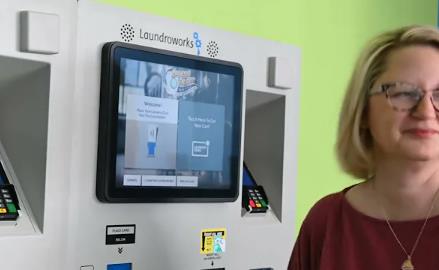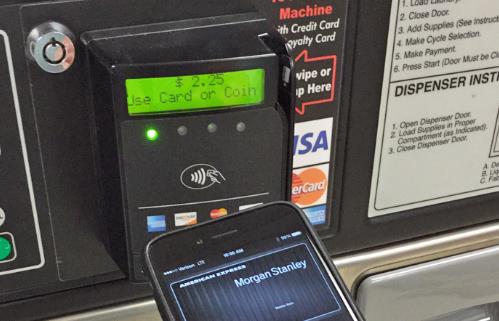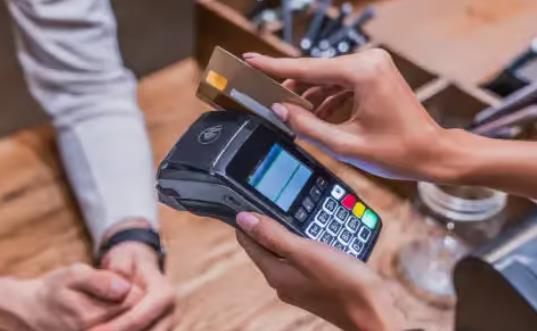This blog post will examine Do Laundromats Take Debit Cards? Customers increasingly demand greater flexibility from firms in many different sectors, and the laundry sector is no exception.
Depending on your business location, customers may anticipate that you will accept particular payment methods that go beyond the conventional coin-operated model.
By being adaptable and removing any tech restrictions, you may improve your profits by serving clients who prefer various payment ways. But how do you choose which ones you ought to be providing?
Do Laundromats Take Debit Cards?
Just insert quarters into the machine’s built-in slot or swipe or tap a credit/debit card to pay for your wash or dry.
Customers can also utilize mobile devices to make purchases using NFC mobile wallet services from smartphones and smartwatches, such as Apple Pay, Google Pay, or Samsung Pay.

Card Payments At Your Laundromat: How To Choose A Payment Processor?
The long-term success of your payment program may depend on choosing the correct payment processor for your laundromat. What to look for is listed here.
Two questions must be addressed for your laundromat to accept card payments:
- Which laundry card option is best for my company?
- How can I pick a payment partner for such transactions?

When assessing a laundry card system, numerous factors exist, including cost analysis and moving away from coin-op. But what about accepting payments? What does a payment processor do? How do you pick the best one for your laundromat, then?
A payment processor, often known as a merchant processor (or simply processor), is the business in charge of handling the debit and credit card payments you receive from clients and transferring this data to other participants in the payment chain.
The processor ensures flawless operation of all transactions so that the final deposit of the net amount of your customer card payments into your bank account.
Different factors must be considered when choosing a payment processor vs. a laundry card option. Selecting a skilled and proactive partner is crucial since processors are crucial to the long-term success of your payments program.
What Should You Ask When Selecting A Payment Processor?
To get you started, consider these three queries below:
How Does The Processor Approach Pricing?
It costs money to receive credit card payments. So, how much should you spend to have your laundromat accept debit and credit cards? The ideal merchant processor will adopt a consultative approach and take the time to comprehend your company’s specific requirements.
Following that session, you should be given a clear and understandable explanation of your price model.
A processor should be able to explain the fundamentals of exchange, assessments, and PCI compliance costs.

Thanks to your processor’s clear and transparent pricing, you can better forecast your laundromat’s cash flow by understanding the costs of accepting payments.
Does The Processor Understand Laundromats?
When it comes to managing your laundromat, there are a ton of factors to take into account: multi-unit management, owning vs. leasing, remote management, counter service, going cashless, and the list goes on.
Your payment processor must be aware of the daily difficulties and chances that laundromats encounter. For a processor to assist you in troubleshooting and rapidly resolving frequent payment issues, look for one with a clientele that includes businesses in the laundry industry.
Does The Processor Offer 24/7 Support?
A laundromat owner must be available 24 hours a day, seven days a week, because questions about payments may arise at any moment. Working with a processor that offers 24/7 service and assistance will enable you to resolve concerns quickly.
To take card payments, ensure your processor knows the laundry card solution you’re utilizing. This information can assist in finding speedy solutions to issues and pointing out prospective growth possibilities.
Conclusion
To summarize, Do Laundromats Take Debit Cards? Yes! Laundromats take debit cards. The typical response is to go to the bank where you have an account. Ask politely INSIDE any branch bank if you don’t have an account.
Use the window rather than the drive-through because commercial businesses are the ONLY ones allowed to use the lane at the window to pick up change orders or make sizable deposits for their business.
The bank is a private company and is not obligated to accommodate you. Every store goes there to receive change for their patrons. Most businesses don’t want to sell their change because of this.
Since individuals frequently do their laundry on the weekends and all banks are closed, they may need more supplies and have to get more. Visit the bank early on a workday. Many shut down their lobbies by the afternoon.
Frequently Asked Questions
Can you use a debit card at the laundromat?
Plastic is the most typical modern method of payment for laundromats. Credit and debit cards are commonly accepted. Others have a centralized system where you can pay for whatever machine you want, while some facilities have independent payment terminals for each machine.
Do laundromats take card payments?
There’s no need to look for cash before going to the laundromat, even though some offer change machines. Clients can swipe their debit or credit card to pay at several establishments.
Can I buy clothes with a debit card?
A debit card works nicely for regular transactions like gas, groceries, meals, clothes, and other things. Debit is practical and efficient as long as you have enough money in your account (remember that using a debit card immediately removes the money, so there should be enough to pay the expense).
Why do laundromats only take cash?
For instance, most consumers will only shell out a few dollars at a time for laundry. A sum of money for which many retailers would be hesitant to accept a credit card due to the interchange fees.

Muhammad Talha Naeem is a seasoned finance professional with a wealth of practical experience in various niches of the financial world. With a career spanning over a decade, Talha has consistently demonstrated his expertise in navigating the complexities of finance, making him a trusted and reliable figure in the industry.








